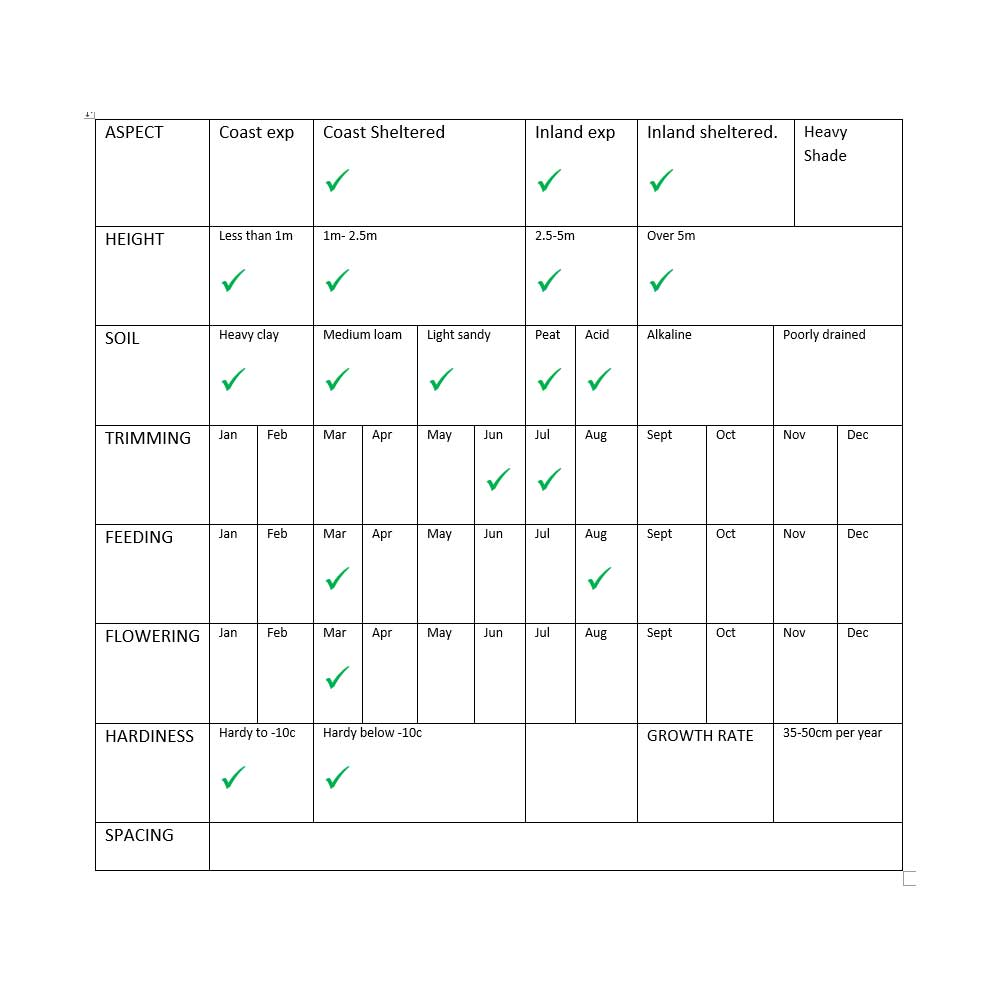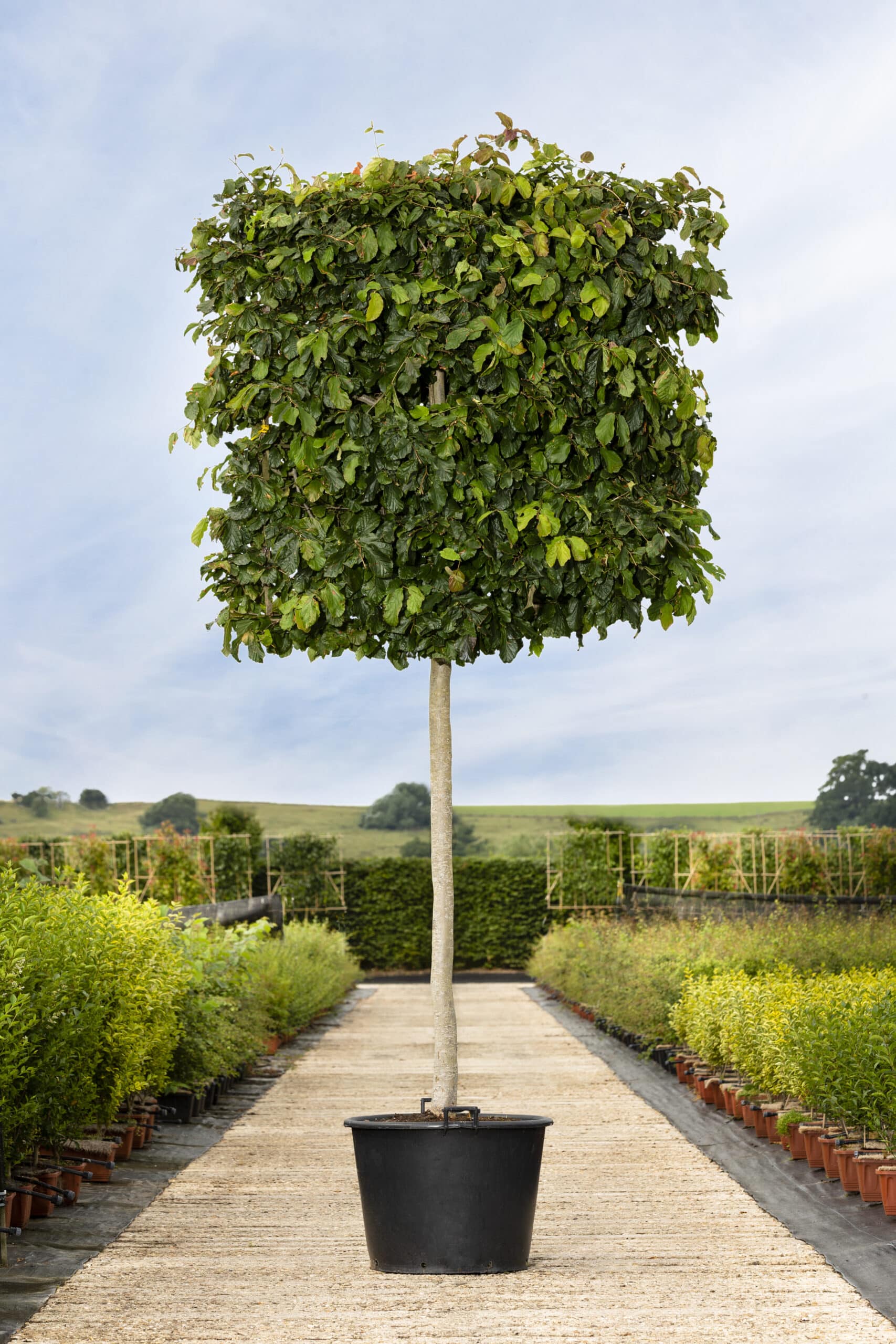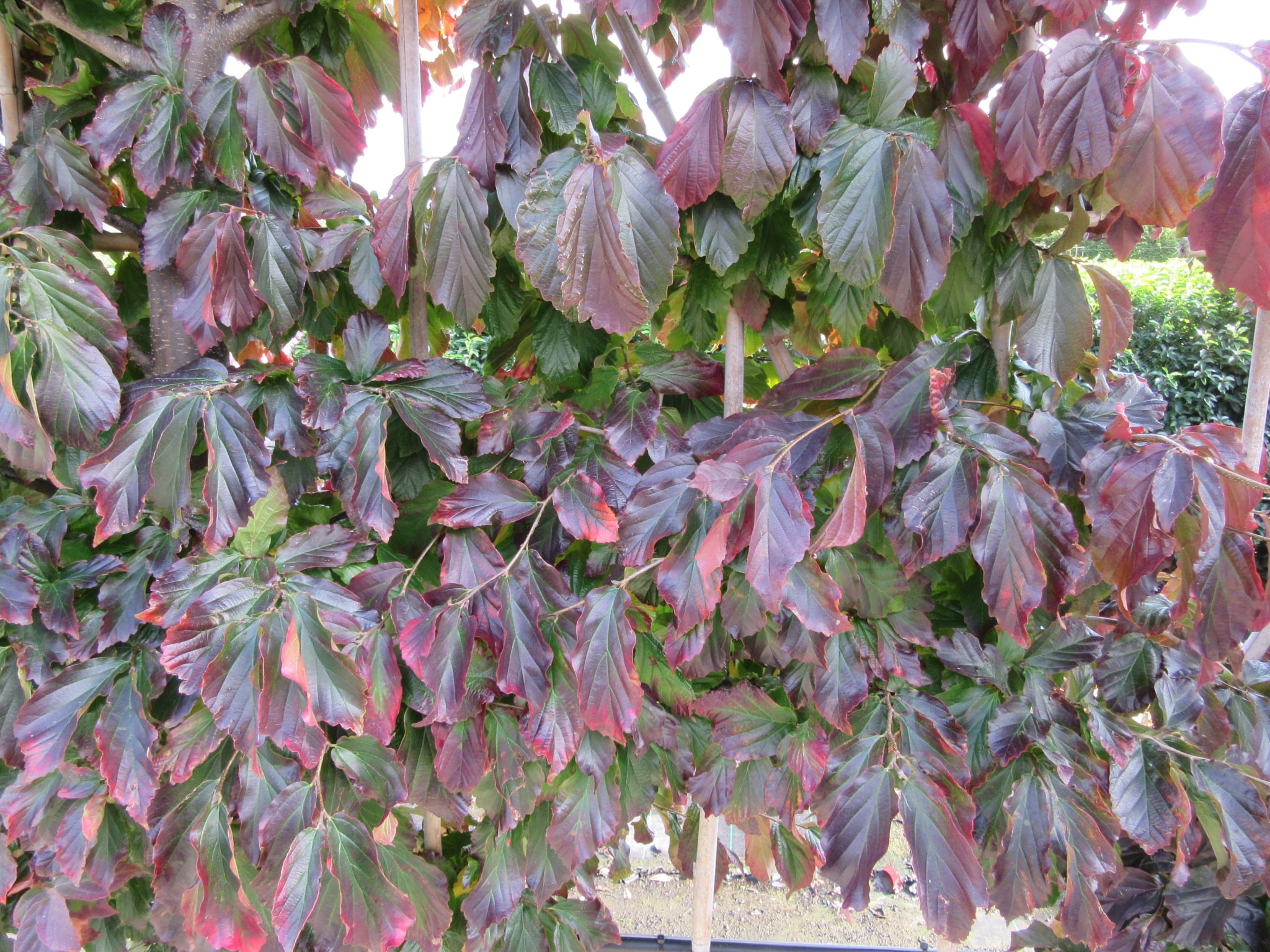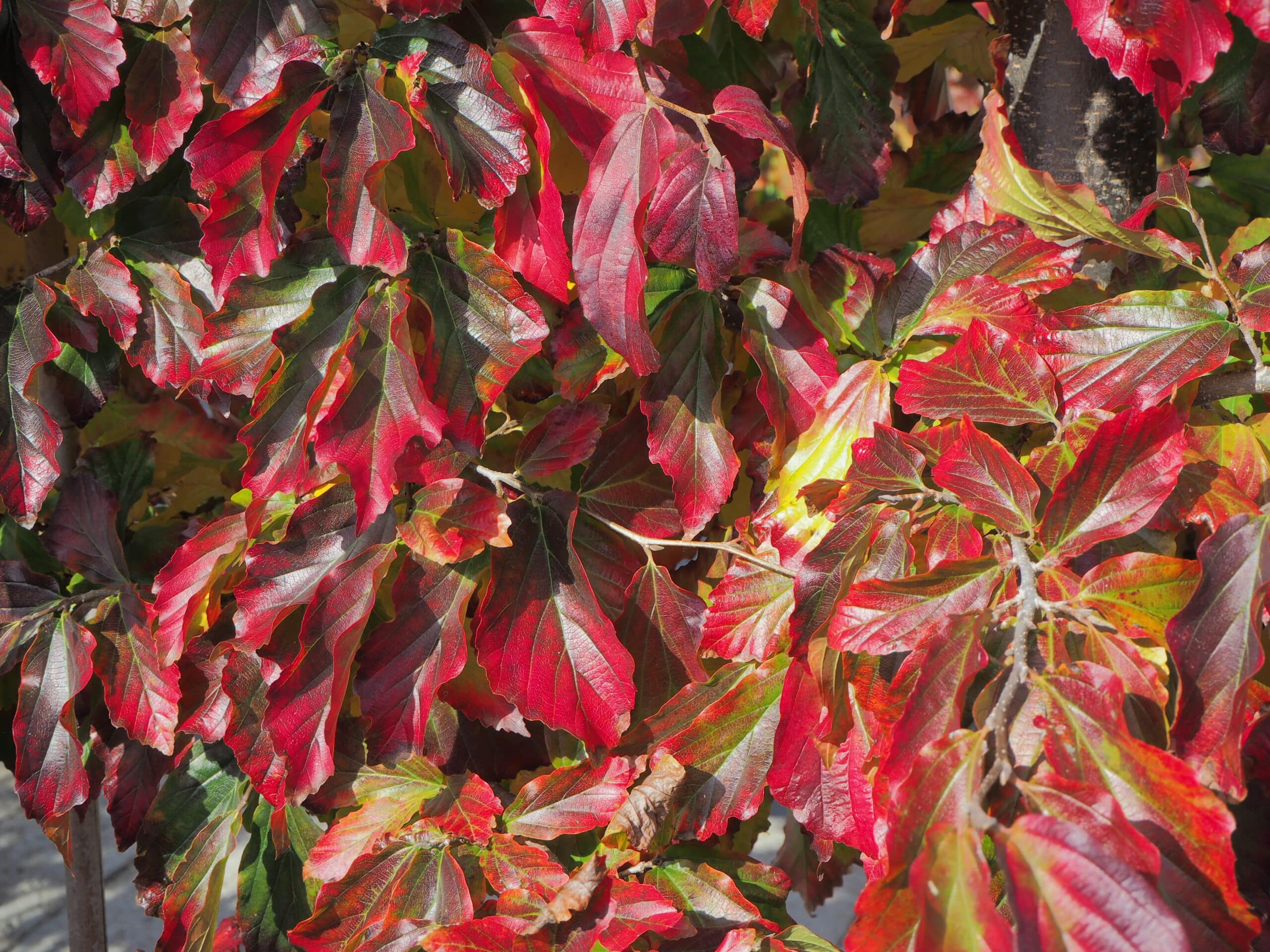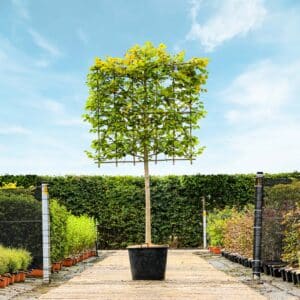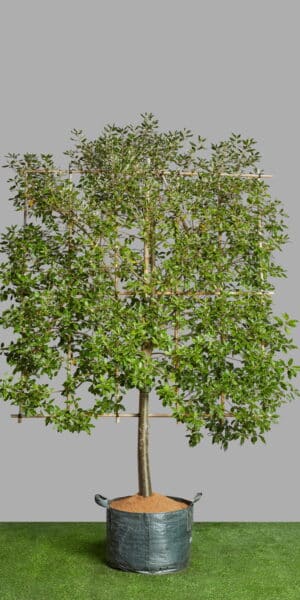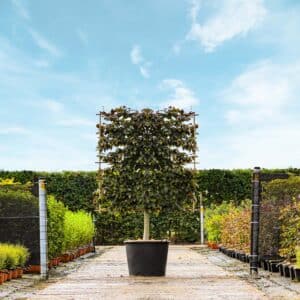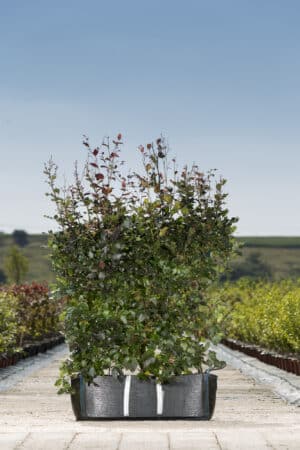Parrotia Persica Aerial Screening
Parrotia persica or Persian Ironwood is a beautiful small tree or large shrub. In the wild it is found growing south and south-west of the Caspian Sea in what was Northern Persia and in the Lenkoran region of Russia (now in Azerbaijan).
Parrotia persica or Persian Ironwood is a beautiful small tree or large shrub. In the wild it is found growing south and south-west of the Caspian Sea in what was Northern Persia and in the Lenkoran region of Russia (now in Azerbaijan).
Parrotia persica was first introduced into the United Kingdom in 1841 when plants were sent from St Petersburg to Kew Gardens.
Parrotia persica has rounded leaves much like those of the Witch Hazel (Hamamelis spp.) and these leaves are a deep green and are slightly wavey around the edge. The main reason for growing this lovely plant is the amazing autumn colours of gold and crimson that the leaves turn in the Autumn. Equally impressive but not quite as noticeable are the flowers that are borne in February and March. Although small the flower are spidery and reddish purple and en-masse can look superb and slightly surreal.
Parrotia persica has another hidden beauty and that is the smooth grey stems that can only be seen to the best when the tree is grown as a screening panel. As it gets older the stem starts to flake in a very similar fashion to the London Planes, and this is just another level of interest that this plant produces.
Parrotia persica has been found to be tolerant of drought. It was given an Award of Garden Merit by the Royal Horticultural Society on 1984
Additional information
| Clear Stem Height | 50 cm, 100 cm, 150 cm, 180cm |
|---|
Product Information
